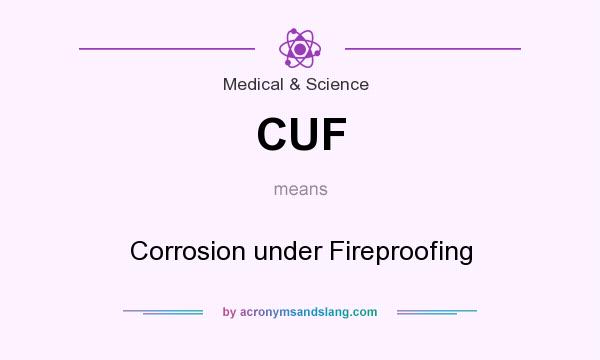Corrosion is when a refined metal is naturally converted to a more stable form such as its oxide, hydroxide or sulphide state this leads to deterioration of the material.
in the same way What is corrosion BYJU’s? Corrosion is called the slow swallowing up of metals by the action of sunlight, moisture or a chemical reaction (such as acid) on their surface. … General corrosion happens when one or more of the atoms are oxidised on the same metal surface, destroying the entire surface.
What is 12th corrosion? The spontaneous destruction of metals due to their interaction with environment is called corrosion. Corrosion takes place on the exposed surface. When the upper layer of the metal gets corroded, then the inner surface of the metal gets exposed, and the corrosion then continues up to certain depth.
What is corrosion of iron called? Corrosion of iron is commonly known as rusting.
What is corrosion 4th?
Corrosion Category C4
This can be achieved with coating thicknesses of 115, 165 or 215 microns, as shown in Table 4. These large thicknesses can be reached only if previously agreed with the galvanizer, and when reactive steel has been choosen.
Beside this What is the rust formula?
The chemical formula for rust is Fe2O3 and is commonly known as ferric oxide or iron oxide. The final product is a series of chemical reactions simplified below as- The rusting of the iron formula is simply 4Fe + 3O2 + 6H2O → 4Fe(OH)3.
What is CBSE 10th corrosion? Corrosion is the deterioration of a metal as a result of chemical reactions between it and the surrounding environment. Metals are attacked by substances in surroundings like moisture and acids: Silver – it reacts with sulphur in the air to form silver sulphide and turns black.
What are the 3 types of corrosion? CORROSION TYPES And Prevention
- Uniform Corrosion. Uniform corrosion is considered an even attack across the surface of a material and is the most common type of corrosion. …
- Pitting Corrosion. …
- Crevice Corrosion. …
- Intergranular Corrosion. …
- Stress Corrosion Cracking (SCC) …
- Galvanic Corrosion. …
- Conclusion.
How does class 10 prevent corrosion?
Prevention of rusting
- By painting.
- BY applying grease or oil.
- By galvanisation:The process of depositing a thin layer of zinc metal on iron.
- By tin plating and chromium plating.
- By alloying it.
Why is corrosion called rusting? The most common example of corrosion is the rusting of iron. … The water vapors and air are responsible for the formation of rust because they react with the surface of metal by which corrosion occurs. Rusting of iron involves an increase in the oxidation state of iron, accompanied by a loss of electrons.
What is corrosion of copper called?
General Science
corrosion of copper is called as patina.
What is the black coating on silver? Answer: Blacking coating on silver is due to the formation of silver sulphide (Ag2S). When silver is exposed to air, it combines with the hydrogen sulphide gas in the air to generate a black silver sulphide coating. In all solvents, silver sulphide is insoluble.
How is corrosion different from rusting?
Corrosion is the process by which certain materials, metals and non-metals, deteriorate as a result of oxidation. Rusting is oxidation of iron in the presence of air and moisture. Corrosion can occur on materials such as ceramics or polymers.
What is Fe3O4 called?
Iron Oxide (fe3o4)
Is Fe3O4 rusty? Magnetite (or Fe3O4) is an elaborate kind of rust – a regular lattice of oxygen and iron atoms. But this material plays an increasingly important role as a catalyst, in electronic devices and in medical applications. … The properties of magnetite are governed by missing iron atoms in the sub-surface layer.
Why is rust called rust? The best-known of these reactions involve oxygen, hence the name “oxidation”. The terms “rust” and “rusting” only mean oxidation of iron and its resulting products. Many other oxidation reactions exist which do not involve iron or produce rust. But only iron or alloys that contain iron can rust.
What is corrosion by Vedantu?
Chemically active metals get eroded in the presence of air and moisture in the atmosphere. … Corrosion is the decaying of metals on the grounds of the chemical reaction in the presence of the immediate environment.
Which oxide film is more protective? Answer: zinc oxide and aluminium oxide layers are most protective against corrosion because they are amphoteric oxides i.e. they do not react with acids as well as bases.
What are the 8 types of corrosion?
There are many different types of corrosion that are visible to the naked eye: uniform corrosion, pitting, crevice corrosion, filiform corrosion, galvanic corrosion, environmental cracking, and fretting corrosion, to name a few. Let’s review how these types of corrosion occur, and how they can damage carbon steel.
What are the 8 most common types of corrosion?
- Uniform Attack. Uniform attack is the most common form of corrosion. …
- Galvanic or Two-Metal Corrosion. …
- Crevice Corrosion. …
- Pitting. …
- Intergranular Corrosion. …
- Selective leaching. …
- Erosion Corrosion. …
- Stress-corrosion cracking.
Does gold corrode in water?
Gold is one of the least reactive elements on the Periodic Table. It doesn’t react with oxygen, so it never rusts or corrodes. Gold is unaffected by air, water, alkalis and all acids except aqua regia (a mixture of hydrochloric acid and nitric acid) which can dissolve gold.
Which two metals dont corrode easily? Gold and Platinum are the metals which do not corrode easily.
Do’t forget to share this post !
